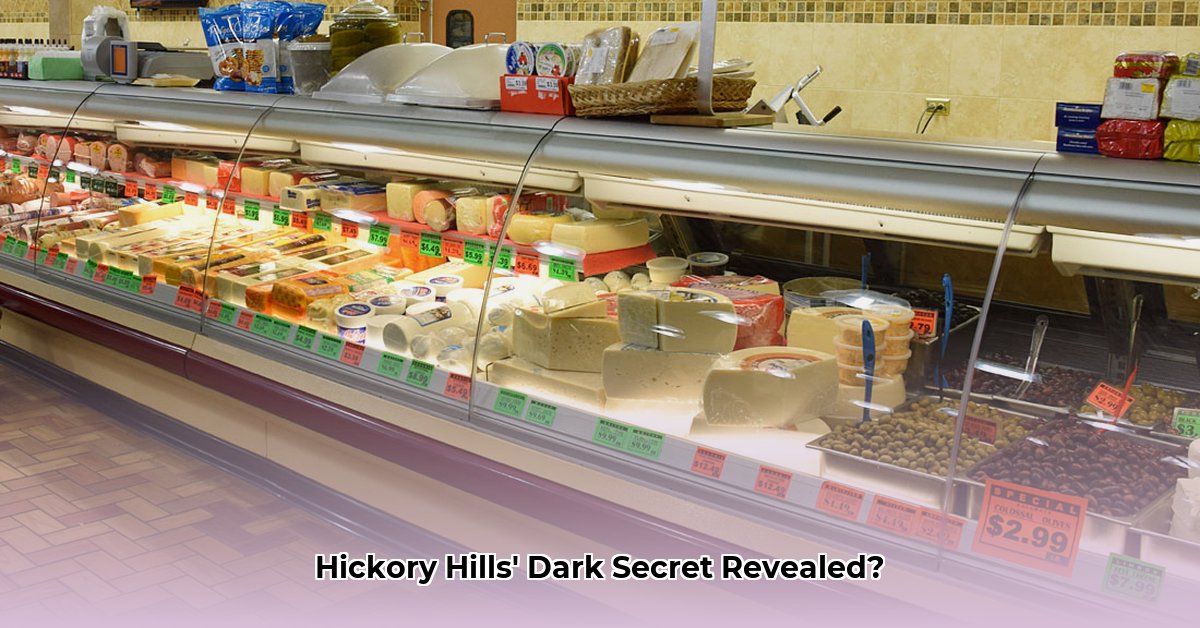
95th Produce Hickory Hills: A Closer Look at Sustainability
95th Produce Market in Hickory Hills, Illinois, promises consumers fresh, affordable produce. Their website emphasizes speed and efficiency in getting produce from farm to table. However, a critical examination reveals a significant lack of transparency regarding their sustainability claims, raising concerns about their environmental and social impact. This investigation explores the gap between marketing and verifiable data.
What 95th Produce Hickory Hills Says
The 95th Produce website promotes its offerings as fresh and affordably priced, highlighting a streamlined process from origin to consumer. This marketing emphasizes speed and efficiency. However, the website lacks specific details about their sustainability practices, leaving consumers with a largely incomplete picture.
The Sustainability Story: More Questions Than Answers
The market's website offers limited information on its environmental and social initiatives. While it mentions sourcing produce from various locations including Greece, Italy, Poland, Lithuania, and Arabic countries, crucial details remain absent. This opacity hinders any objective assessment of their sustainability.
Key questions remain unanswered: What criteria determine supplier selection? Are ethical sourcing practices and fair trade principles prioritized? What are their organic farming practices (if any)? How do they minimize food waste throughout their supply chain? What transportation methods are used, and what is their associated carbon footprint? The absence of this vital information prevents a comprehensive evaluation of their true sustainability impact.
"It's like trying to judge a book by its cover," says Dr. Anya Sharma, Professor of Sustainable Supply Chains at the University of Illinois. "You see the attractive packaging, but the content remains largely hidden.”
Uncovering the Facts: What We Don't Know
The lack of transparency is a considerable obstacle to evaluating 95th Produce's sustainability. Reliance on self-reported information from their website is inadequate for a thorough assessment. Without access to internal data and independent verification, conclusions about their environmental and social responsibility remain speculative at best. This situation underscores the critical need for greater transparency within the food industry.
A critical evaluation requires information detailing: supplier selection criteria, transportation methods and their associated carbon footprint, waste reduction strategies, worker welfare standards, and environmental impact assessment (e.g., water and energy usage, pesticide management). The absence of this data prevents an independent and objective assessment of the market's sustainability claims.
Stakeholder Analysis: Shared Responsibility
The responsibility for promoting sustainable practices rests not solely with 95th Produce, but also with consumers and regulators.
95th Produce Market: Must provide complete and verifiable data on its supply chain, ethical sourcing, waste management, and environmental impact. This transparency is essential for building consumer trust and accountability.
Consumers: Should actively seek out businesses committed to transparency and verifiable sustainability. Demanding better information empowers consumers to make informed, ethical purchasing decisions.
Regulators: Need to establish and enforce clear standards for sustainability reporting within the food industry. This includes requiring mandatory disclosure of crucial supply chain data and holding companies accountable for misleading claims.
Conclusion: Towards Greater Transparency
The significant lack of transparency surrounding 95th Produce Market's sustainability practices highlights a broader issue within the food industry. While their website promises fresh, affordable produce, an objective evaluation of their environmental and social impact is currently impossible due to insufficient data. This investigation underscores the crucial need for greater transparency. Only through open communication and verifiable information can consumers make informed choices and encourage wider adoption of sustainable food practices. The hope remains that with increased transparency, businesses like 95th Produce can lead the way toward a more sustainable future for the food industry.
Areas Needing More Investigation
The following aspects require additional investigation to fully assess 95th Produce's sustainability:
Supplier Selection & Ethical Sourcing: Detailed information on supplier selection criteria, ethical standards enforced, and certifications (organic, fair trade, etc.).
Transportation Methods & Carbon Footprint: Specifics on transportation methods, associated carbon emissions, and efforts to reduce these emissions.
Waste Reduction: Detailed description of food waste reduction strategies at each stage, percentage of food wasted, and its disposal methods.
Labor Practices and Worker Welfare: Information on working conditions, wages, and ethical treatment of workers throughout the supply chain.
Environmental Impact (Water, Energy, Pesticides): Data on water and energy usage, types of pesticides used, and their management.